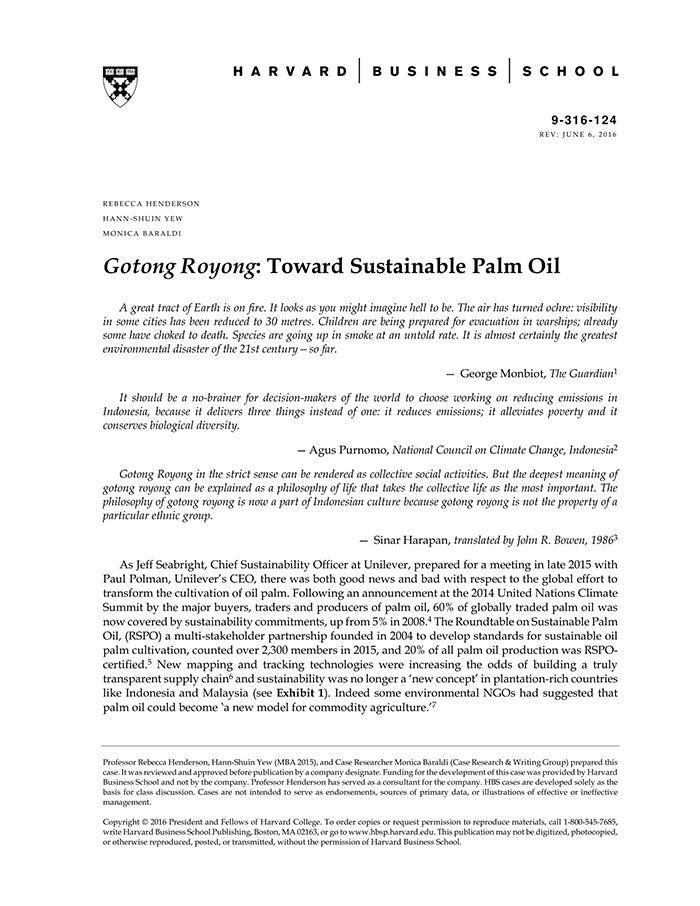Gotong Royong: Toward Sustainable Palm Oil
受取状況を読み込めませんでした
In late 2015, Jeff Seabright, Chief Sustainability Officer at Unilever, had to report to Unilever CEO Paul Polman on the effort to transform the cultivation of oil palm. Historically, palm oil was produced using unsustainable methods that included burning large tracts of forest land which destroyed wildlife habitats, displaced native populations, and emitted greenhouse gases into the atmosphere. Global demand for palm oil was increasing which made the situation worse. Unilever was the largest single buyer of palm oil, purchasing about 3% of global production, and had been an active promoter of sustainable palm oil production. In 2015, 60% of globally traded palm oil was covered by sustainability commitments, up from 5% in 2008, but there was more to be done. Palm oil-driven deforestation and different kinds of social issues continued across the world, especially in Indonesia and Malaysia, which produced 80% of palm oil. The case discusses the sustainability strategy implemented by Unilever across time with regards to palm oil, together with the efforts implemented by other organizations such as the Consumer Goods Forum, the Roundtable On Sustainable Palm Oil, social and environmental NGOs, Unilever's competitors and the local governments in Southeast Asia. What more could Unilever do to advance the diffusion of sustainable palm oil?
【書誌情報】
ページ数:25ページ
サイズ:A4
商品番号:HBSP-316124
発行日:2016/3/17
登録日:2016/7/11


